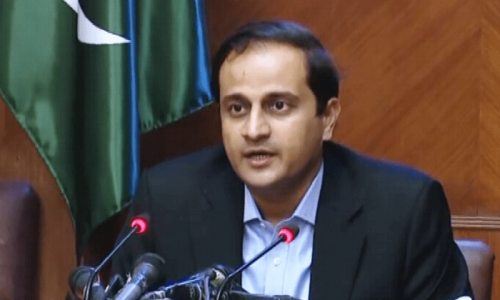 KARACHI, Aug 16: Great nations learn from history. However, it seems our nation is prone to collective amnesia as we have the tendency to easily forget our past. Perhaps that’s why the study of history should be actively encouraged in Pakistan more than anything else.
KARACHI, Aug 16: Great nations learn from history. However, it seems our nation is prone to collective amnesia as we have the tendency to easily forget our past. Perhaps that’s why the study of history should be actively encouraged in Pakistan more than anything else.
Seen through this perspective, the exhibition currently under way at the National Museum of Pakistan at Burnes Garden contains some gems related to the recent history of the country, specifically dating from the last few years before independence, that deserve to be seen.
Along with the usual portraits of luminaries of the freedom movement and personal belongings of Quaid-i-Azam Mohammad Ali Jinnah, there are various odds and ends that would interest history buffs in particular.
Perhaps the most interesting article on display is a copy of Chaudhry Rehmat Ali’s 1933 pamphlet Now or Never: Are we to live or perish for ever? It has been claimed that Chaudhry Sahib came up with the name of Pakistan. Along with the title of the pamphlet, which displays the impressive by-line of Chaudhry Rehmat Ali, MA, LLB, Barrister-at-Law, Founder Pakistan National Movement, various maps are shown with potential names the nation might have had if Chaudhry Sahib had his way. These include Nasaristan, Siddiqistan and Safiistan.
The subcontinent of India has been rechristened Dinia, and has been shown with its dependencies Pakistan, Osmanistan (Hyderabad Deccan and its surrounding areas) and Bangistan (Bengal). Bordering the shores of the huge landmass of Dinia are the Bangian, Pakian and Osmanian seas, probably Chaudhry Rehmat Ali’s terms for the Bay of Bengal, Arabian Sea, and the Indian Ocean.
Under each of these alterative geographies of the subcontinent is written Chaudhry Rehmat Ali’s position as the founder of the Siddiqistan, Nasaristan and Safiistan National Movements.
Another testament of how times have changed in the six decades since independence is a welcome address from the Baluchistan Muslim Students’ Federation delivered during a visit by the Quaid. It says: “We, the members of the Baluchistan Muslim Students’ Federation consider ourselves most fortunate of all our brethren of the other provinces of India in as much as we have the honour to receive you …” Printed at the Islamia Press in Quetta, the sentiments expressed are in stark contrast to the harsh winds of separatism that blow from certain parts of Balochistan today.
Another memorable item on display is a giant blue passport issued by the United Kingdom of Great Britain and Northern Ireland to Mr M.A. Jinnah, bearing passport number 400878. One wishes reproductions of the inside pages could also have been displayed.
Other personal items of Mr Jinnah on display include his monocle, pipe and table watch, as well as envelop and blank papers bearing his monogram and his address of Mount Pleasant Road, Malabar Hill, Bombay. As is well known, this famous address is at the centre of a diplomatic impasse between Pakistan and India, as the government wants it to become the Pakistani high commission in Mumbai, while the Indians don’t seem too excited by this proposition.
There is an interesting cigarette case bearing the map of the subcontinent made by one Abu Talha Artist of Jaipur, while a beautiful wooden engraved perfume box has been manufactured by H. Mohammad Qasim & Sons, perfumers, Bangalore.
There are also personal belongings of Quaid-i-Millat Liaquat Ali Khan such as cuff links, a miniature Qur’an, pen, watch and a stick. Pledges of allegiance to Pakistan written in blood as well as badges of salars of the All India Muslim League National Guards are displayed.
A pamphlet from 1945 poses a set of question to the opponents of Pakistan, while a notice, signed by (Nawabzada) Liaquat Ali Khan, Honorary Secretary, All India Muslim League, dated July 12, 1946, informs people of a meeting to be held at “Kaiser Baugh, Dongri, Bombay, under the presidentship (sic) of Qaid-i-Azam M.A. Jinnah.” It has been issued from the Muslim League’s office in Daryagunj, Delhi.
The exhibition will run till August 29.—QAM











































Dear visitor, the comments section is undergoing an overhaul and will return soon.